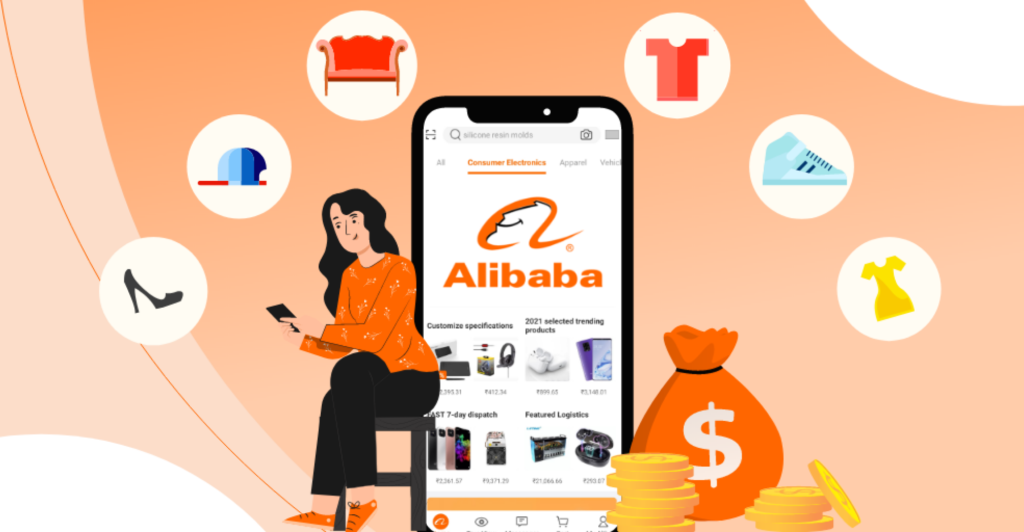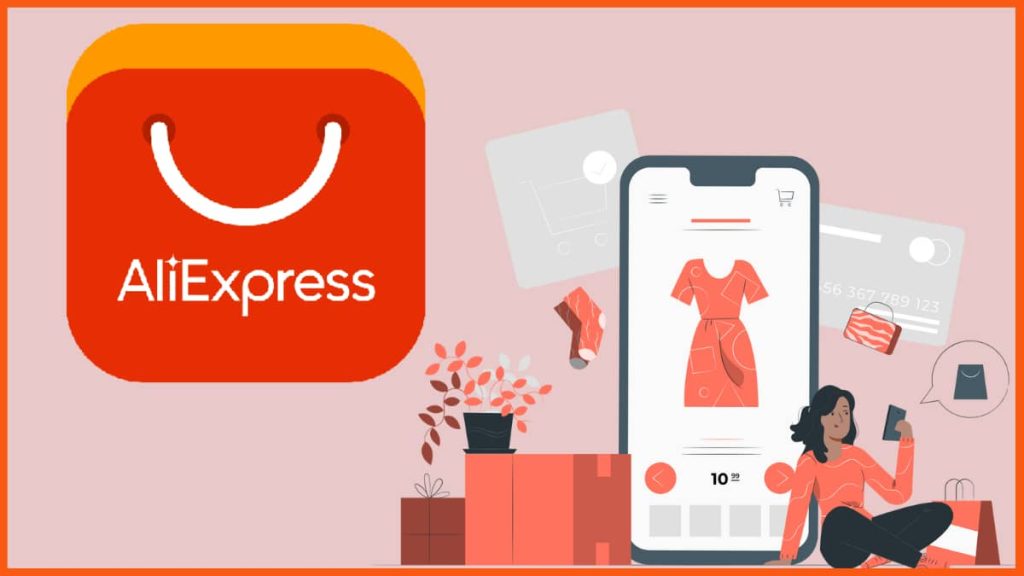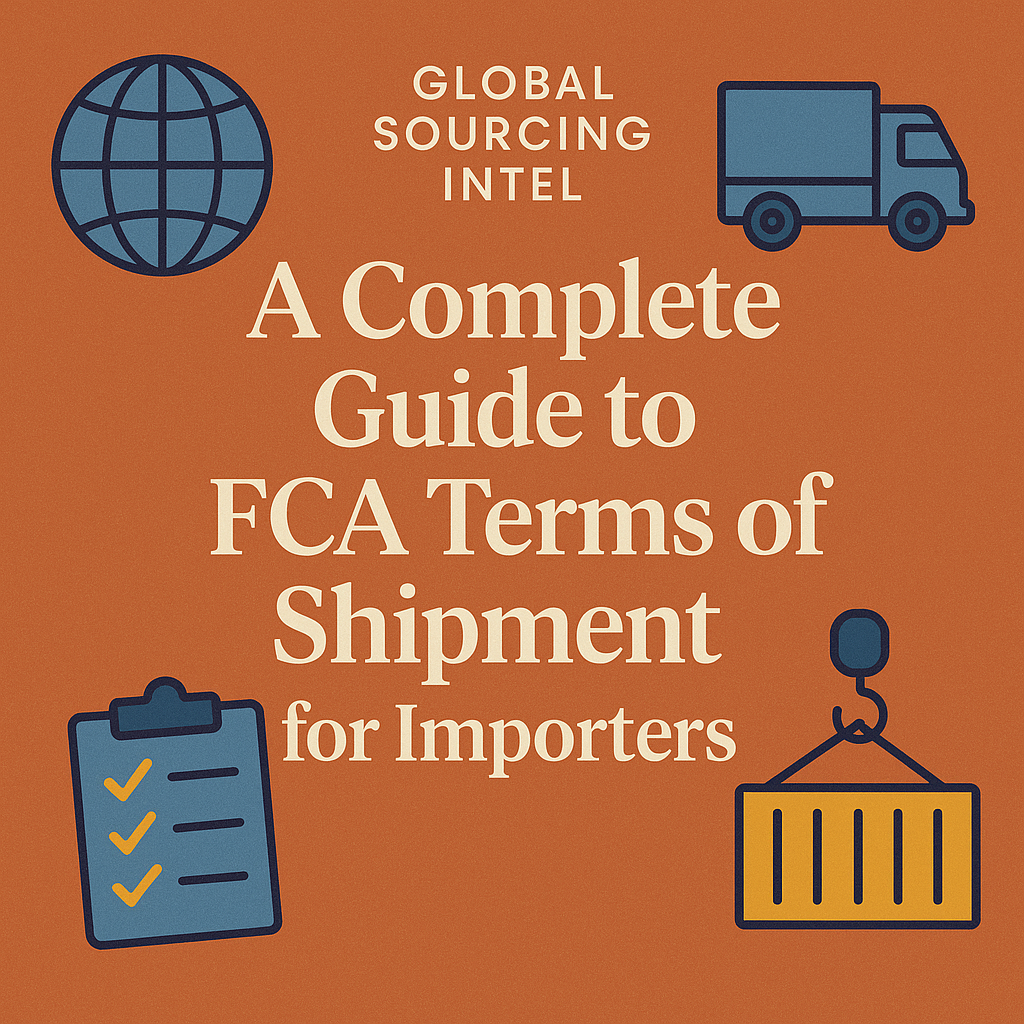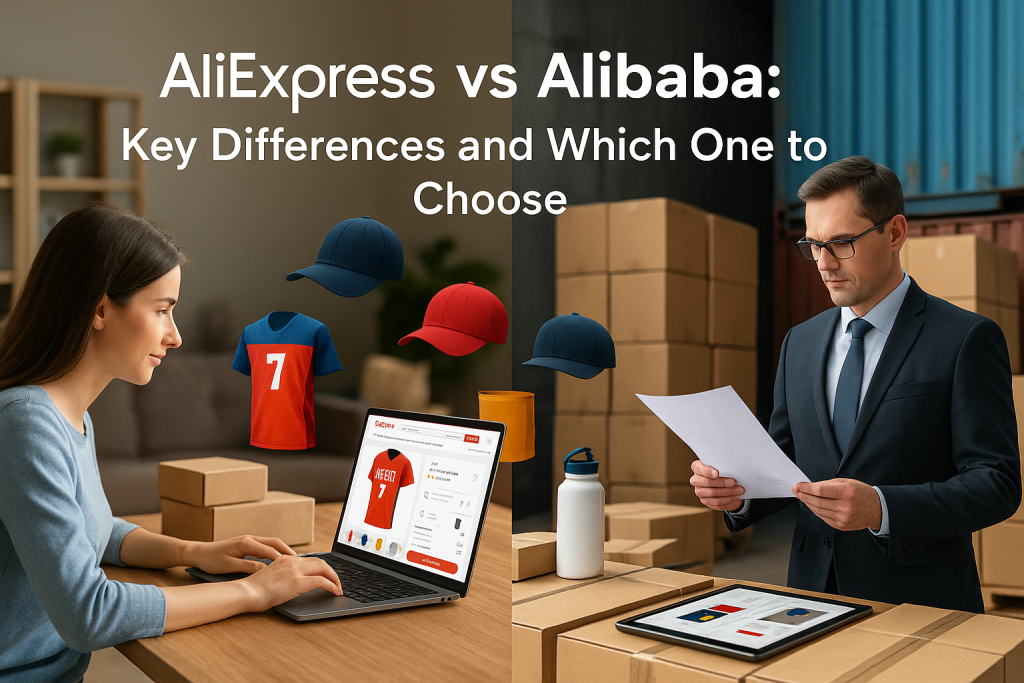Alibaba vs AliExpress: An Overview
When it comes to sourcing products from Asia and beyond, many buyers compare Alibaba vs AliExpress to figure out which platform best fits their needs. Both are part of the Alibaba Group, and each serves as a go-to spot for finding everything from electronics to clothing. But they differ in key ways that can make or break your sourcing strategy.
Alibaba is mainly a business-to-business (B2B) platform that connects importers, wholesalers, and retailers to manufacturers or large-scale suppliers. On the other hand, AliExpress is business-to-consumer (B2C), making it more like a global marketplace where individual buyers can purchase smaller quantities of goods at set prices. This difference is a big reason many small businesses and drop shippers gravitate toward AliExpress.
Key Terms at a Glance
Here are a few important terms to keep in mind when exploring these two platforms:
- Minimum Order Quantity (MOQ): The smallest number of items you must buy from a supplier.
- Private Labeling: When a business puts its own brand on a product made by another company.
- Dropshipping: A method where a store sells products without stocking them, passing orders to a third party.
- Business-to-Business (B2B): Companies selling directly to other companies.
- Business-to-Consumer (B2C): Companies selling products directly to individual customers.
With these terms in mind, let’s dive deeper into the specifics of Alibaba vs AliExpress so you can decide which option aligns better with your sourcing goals.
Alibaba vs AliExpress: Key Differences in Ordering and MOQs
Alibaba vs AliExpress might seem similar at first glance, but each platform has distinct rules regarding order quantities. Alibaba often requires higher MOQs, usually in the range of 100 to 1,000 units per order. Suppliers tend to cater to bulk buyers or businesses looking for large-scale production. These higher MOQs can help secure lower per-unit costs, but they also mean you’ll need enough capital to handle a big purchase up front.
AliExpress, by contrast, has no MOQ requirement. This makes it perfect if you need just a few samples or want to sell through a dropshipping model. Buyers can purchase single units at retail-like prices, which can be a straightforward way to test new products without a huge investment.
Why MOQs Matter
- Risk Management: High MOQs mean a higher up-front cost. That can be risky if you’re new to selling a particular product.
- Bulk Discounts: Ordering in larger volumes often gets you a better price per unit.
- Storage Concerns: If you don’t have enough space for large quantities, buying in bulk might be hard.
Many small businesses work with sourcing partners like RuntoAgent, which negotiate smaller batch orders on platforms similar to Alibaba. This can bridge the gap between large MOQs on Alibaba and the total flexibility you get on AliExpress. Tools such as ForthSource and Accio by Alibaba also help you compare suppliers, displaying costs, minimum order requirements, and shipping durations side by side.

Alibaba vs AliExpress: Pricing, Payment, and Customization
When discussing Alibaba vs AliExpress, pricing and payment methods are major points of difference. Alibaba supports diverse transaction options such as wire transfers, telegraphic transfers, letters of credit, and eChecks.
These ways of paying are well-suited for large deals and are common among importers and wholesalers. Because Alibaba is designed for B2B transactions, many of its suppliers allow for price negotiation. This could give you a better deal depending on how many units you buy.
AliExpress, meanwhile, focuses on straightforward consumer-friendly payment methods, including credit cards and AliPay. You can’t usually negotiate on price, since AliExpress is more like a standard online marketplace with fixed prices.
However, the upside is convenience: you simply place your order with a click and pay with a credit card. This model works well if you’re just starting out, want to test a product quickly, or prefer a smaller commitment.
Customization Options
Another big factor to mention in Alibaba vs AliExpress is product customization. On Alibaba, businesses can connect with suppliers for private labeling or customizing a product’s design, material, or packaging. You can often discuss your brand’s needs directly with the factory, which is ideal if you want your goods to stand apart in a crowded market. In contrast, AliExpress usually deals in ready-made products. This means you purchase items “as-is,” with no chance for changes on style or branding.
If you’re looking to scale your business and make your products unique, Alibaba might outshine AliExpress for that reason alone. But if you’re not interested in custom goods, AliExpress can be a straightforward option that gets you quick, small-batch orders without the fuss of factory negotiations.

Alibaba vs AliExpress: Market Trends and Growth
Both Alibaba and AliExpress continue to expand their reach, but they do so in different ways. Alibaba reported its fastest revenue growth in more than a year, increasing by 8% to around 280.2 billion yuan (about $38.38 billion).
Most of that growth comes from large-scale buyers who rely on Alibaba for steady supply and customized products. Alongside this, Alibaba has been investing heavily in artificial intelligence, reflecting a push to boost efficiency and possibly revolutionize the way suppliers connect with buyers.
AliExpress, for its part, has gained ground in markets where buyers seek low prices and broad product options. Recent expansion in South Korea shows that AliExpress is taking advantage of competitive prices to woo international shoppers who might otherwise turn to platforms like Amazon.
Another growing trend is supplier verification—both Alibaba and AliExpress have enhanced features that label verified suppliers, helping buyers trust their purchase choices. Trust can be a huge factor, especially if you’re new to importing or wholesaling.
Recent Trends in Detail
- Aggressive AI Investment: Alibaba aims to develop advanced AI capabilities in the next three years, which could streamline sourcing and communications.
- International Expansion: AliExpress’s low prices have helped it break into markets like South Korea, offering an alternative to more established global retailers.
- Cloud Business Growth: Alibaba’s cloud services grew by 13% recently, indicating the importance of tech advancements across Alibaba Group’s platforms.
- Enhanced Buyer Protection: Verified suppliers and buyer safeguards encourage more first-time importers to use both Alibaba and AliExpress.
Beyond these trends, companies like Jungle Scout, SellerApp, and Sup Dropshipping continue to offer specialized tools that aid in supplier comparisons, market analytics, and order fulfillment. For instance, Jungle Scout provides analytics for Amazon sellers considering sourcing options, while SellerApp gives insights into top-performing products and reliable suppliers. Such software can complement your sourcing strategy no matter which platform you choose.
Conclusion
Choosing between Alibaba vs AliExpress depends on your specific needs and level of experience. If you require large quantities, want to negotiate pricing, or need customized goods, Alibaba’s B2B structure is well-suited for you. It caters to businesses that are ready to put down a serious investment and handle higher MOQs. Plus, the scope to create private label products can help you build a dedicated brand.
If, however, you’re looking for a small number of items, prefer not to negotiate on pricing, or want a quick and simple purchase process, AliExpress might be the better fit. Its no-MOQ policy means you can buy a single unit without worry, which is a massive plus for individuals testing new niches or managing a dropshipping model.
At the same time, the lines can blur. Platforms like RuntoAgent help you negotiate smaller batch orders, and tools such as Accio by Alibaba, ForthSource, Jungle Scout, and SellerApp streamline product searches, supplier evaluations, and cost comparisons. With businesses continuing to look abroad for new trends and cheaper manufacturing, it’s clear that Alibaba vs AliExpress isn’t just a question of one-size-fits-all but a matter of individualized strategy.
Deciding which platform is right for you will depend on your budget, timeline, and ultimate goals. Whether you go with Alibaba to scale your brand or AliExpress to experiment in the market, each offers unique benefits to make global sourcing accessible.
Evaluate your order size, check payment options, factor in shipping times, and weigh how important private labeling is for your brand. By doing so, you’ll be better prepared to choose the platform that helps your business grow.
In the end, it all comes down to thoughtful planning. If you’re a growing business wanting custom products and bulk deals, Alibaba may be your top pick. However, if you value simplicity, smaller orders, and instant checkout, AliExpress is your friend.
Whatever your choice, keep an eye on the exciting trends—from rising AI investments to expanded buyer protection—that shape how both platforms will serve millions of buyers worldwide. Staying informed will ensure you get the best results possible when deciding between Alibaba vs AliExpress.



